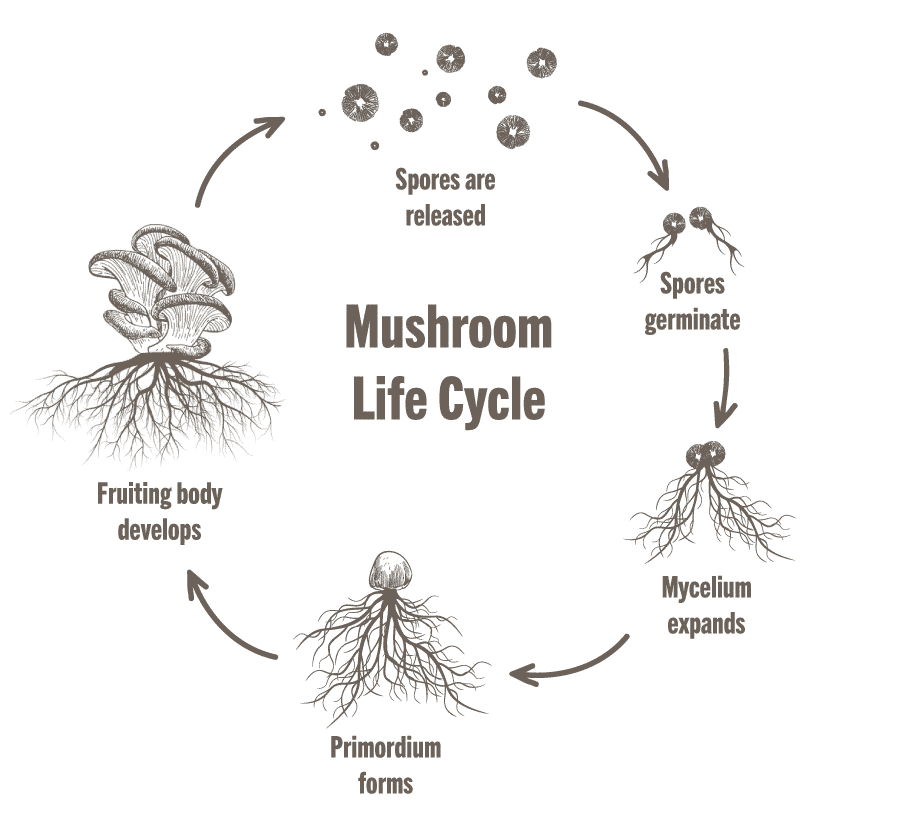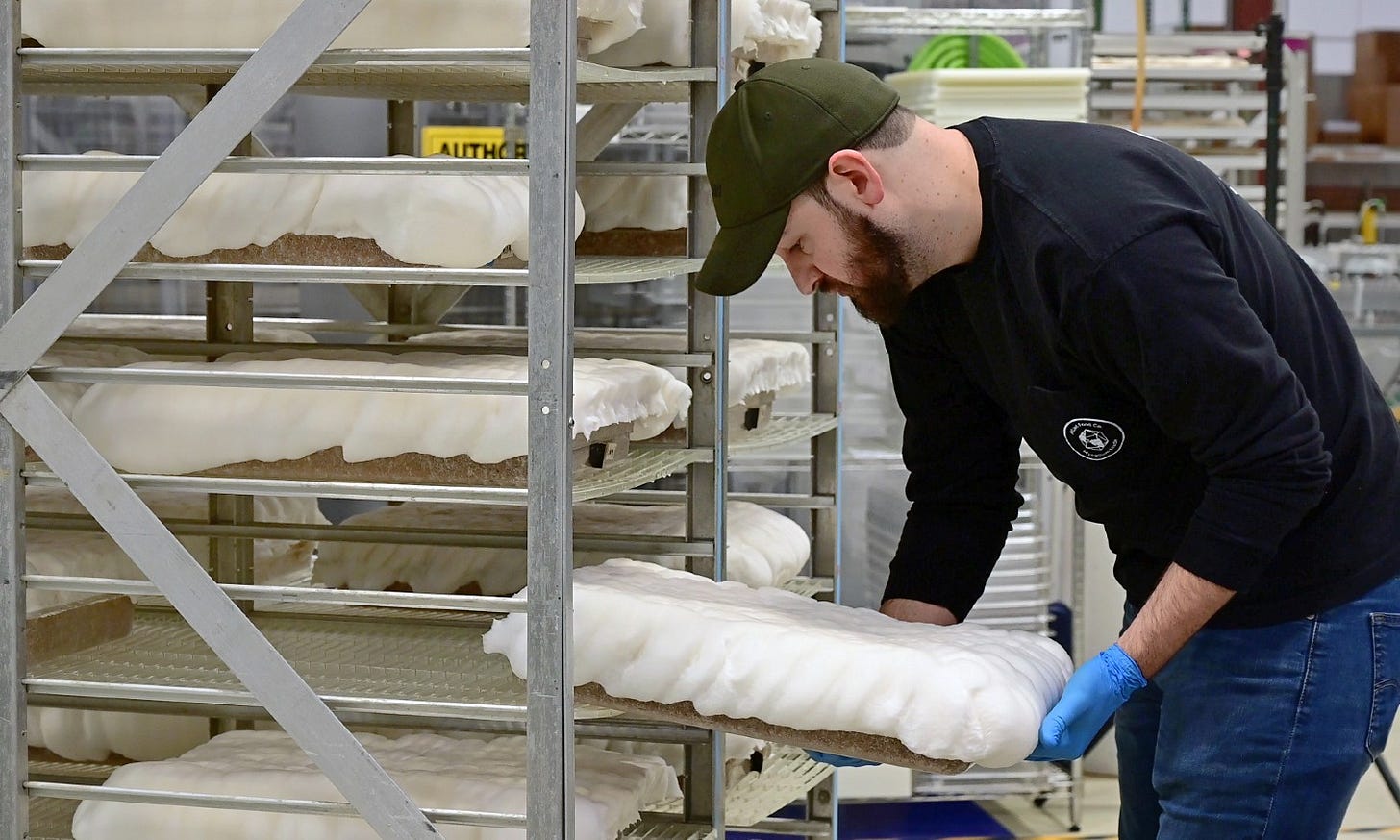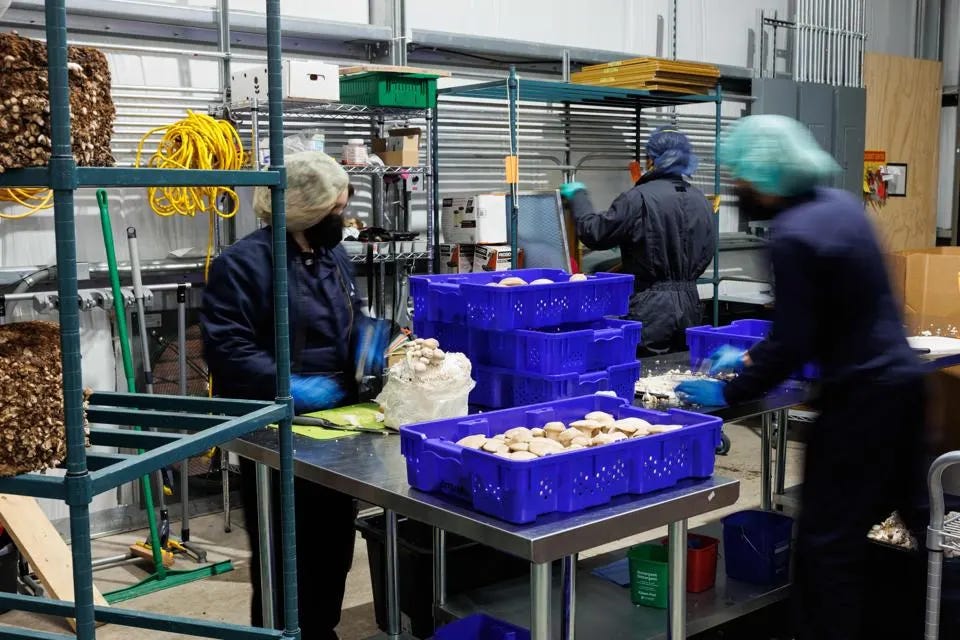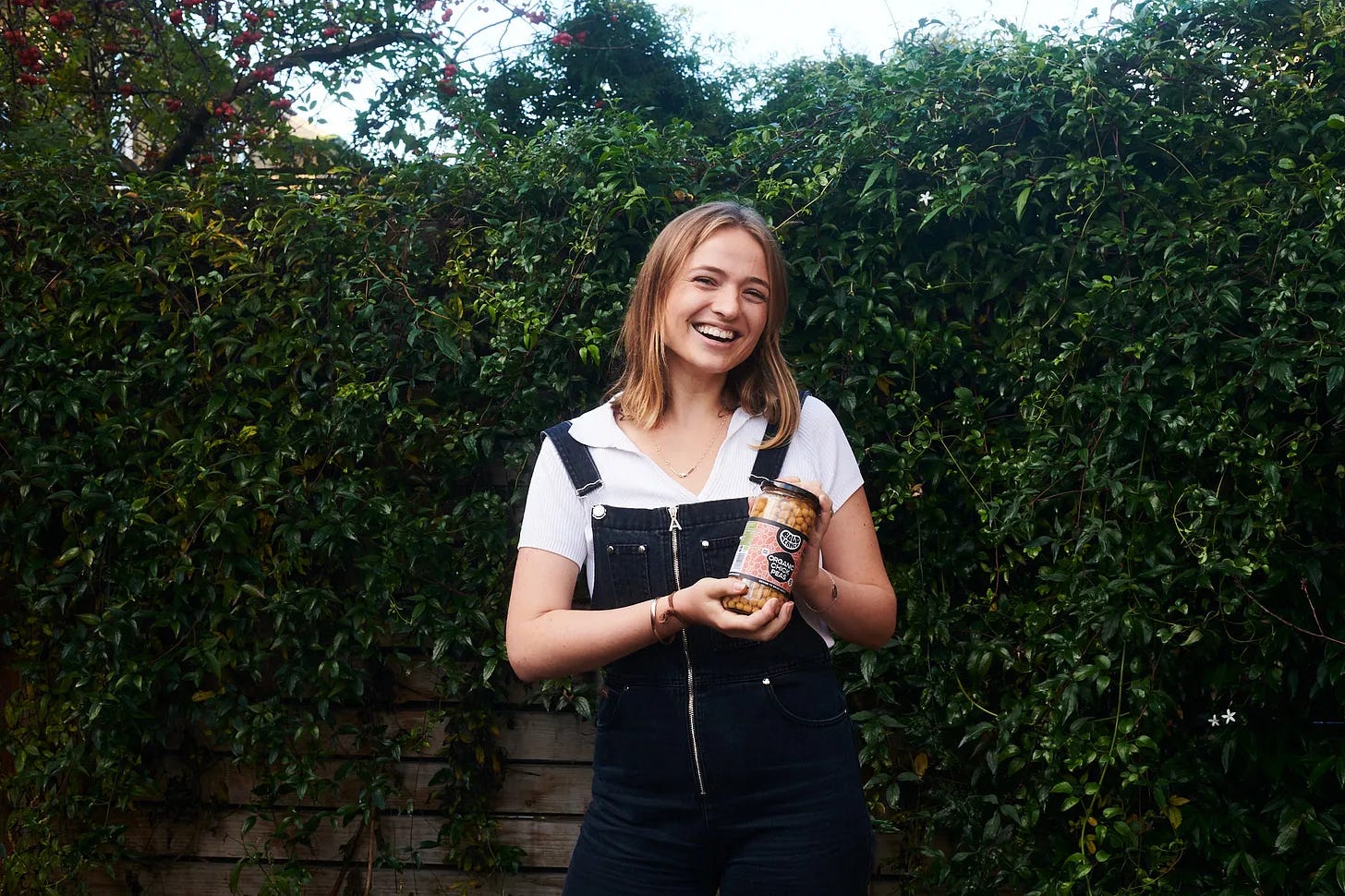🌱 The Future Is Fungi: Why you should get excited about mycelium, and how Smallhold are leading the way!
Featuring VIRON, Kelpi, Better Nature Tempeh, Bold Bean Co and more...
Happy Monday!
This week we cover:
Quick Take: Is the Future Fungi? Why we’re getting excited, and money is pouring into, mycelium.
Brand Spotlight: Smallhold: From agricultural waste to myco-gold.
In case you missed it: 🌱 Spilling the Beans: We chat to Amelia Christie-Miller, founder of Bold Bean Co, and take a look at the 'Beans is How' campaign.
> Good News Last Week
🎯 VIRON, a Paris-based vegan slow-fashion footwear, is now a certified B Corp company.
🎯 Kelpi and Better Nature Tempeh are selected by the Blue Earth Summit as a BE100 company - one of the world's top 100 high-impact ventures positively disrupting their industries.
🎯 Hoxton Farms opened a pilot facility in London to make cultivated fat to improve meat alternatives experience for customers. They are using computational biology and mathematical modelling to get cells to grow as quickly as possible and get high levels of fat accumulation.
⭐️ Marks & Spencer introduced their plastic for life bags with an FCS-certified paper alternative. This means customers can recycle their used bags at home after multiple uses and is more convenient compared to plastic bags, as plastic bags need to be taken to supermarkets for recycling.
⭐️ Carrefour announced they are teaming up with food manufacturers including Unilever and Danone to drive sales of plant-based products. This initiative comes from a growing demand from customers.
⭐️ Coca Cola HBC Austria announced they are collaborating with Mondi Group to replace plastic handles for 1.5 litre PET soft drink multi-packs with cardboard-based outer packaging.
⭐️ Apple announced that they are banning the use of leather for all of its accessories, including watch straps and mobile phone cases. They are using a non-animal fiber alternative, FineWoven, a durable twill made from 68% PCR content.
> Click on each link to read more.
> Quick Take
Is the Future Fungi? Why we’re getting excited, and money is pouring into, mycelium.
Is it just us, or have mushrooms been everywhere in food tech and sustainability news lately? If there’s one trend we’re seeing, it’s that there’s still funding for fungus. Today we’ll explore the high value these organisms can deliver across industries.
First, let’s establish a shared vocabulary…
Biology break - back to the classroom!
If we’re talking mushrooms, mycelium, or anything of the sort, then we’re planted squarely in the fungus family, separate from the plant and animal kingdoms we know and love. A mushroom is one type of reproductive structure produced by certain fungi, there to release spores (like seeds) of new baby mushrooms back into the world. Spores anchor themselves by developing vast, delicate root networks: mycelium. How does this cycle continue? Not by photosynthesis, but by using enzymes to consume organic matter around them (like decaying wood or leaves). They’re recyclers by nature!

So, how is the funky power of fungus being harnessed?
Cheeseburger, hold the burger
Meat is twice as polluting as general plant-based alternatives, and global food production contributes ⅓ of all emissions. The alternative meat industry was quickly wise to the nutrient and physically dense properties of fungi, which are actually genetically closer to animals than plants. There is now mycelium bacon, steaks, more steaks, cutlets or filets, and deli slices. Fungi naturally have a meat-like texture and strong macronutrients versus meat products without manipulation (though not much protein, which keeps ingredient lists appealingly short). Certified B-Corp Smallhold sells it like it is; you can find their organic, lesser-known ‘shrooms in sleek, branded boxes in the largest grocery chains across the United States (more on them in our brand spotlight below). Acreage of farmland isn’t needed to grow fungi, as it is for cattle, and those high emissions across all stages of meat production are reduced; fungi can thrive in vertical farms in old warehouses, shipping containers, and all variety of dark, indoor spaces. That yields a less chemical and resource intensive process, no pesticides required.

Fresh fungus kicks
The next time you slide on sneakers, you could be stepping on ‘shrooms. Mycelium is a top contender across non-plastic, vegan leather alternatives. Ecovative, the parent company of mycelium bacon maker MyBacon, leverages a structurally-engineered slab of mycelium to produce the base material for said leather in only nine days. Other player MycoWorks’s "fine mycelium" leathers are shaping up to be a luxury favorite with launches like Ligne Roset furnishings, a Hermes bag, Nick Foquet hats.
Grounded in mycelium, thoughtfulness can extend across an entire product lifecycle. The Ecovative mycelium-based styrofoam packaging alternative includes upcycled hemp byproduct, making this a home-compostable, circular, single-waste savior. Most mycelium products are fully compostable, meaning notably less waste. That waste reduction starts at the very beginning; the substrate (like sawdust), the material on which spores germinate, is often the byproduct of another industry.
Following the funding
Fungus innovation isn’t just fluff; despite the financial struggles faced by mycelium leather-maker Mylo, we’re seeing recent, large splashes: $125M for MyCoworks’ mycelium production facility, $150M for Meati Foods to continue developing their alternative mycelium meats, $30M for Ecovative’s continued material innovation and alt meat business MyForest Foods, and another $30M for Prime Roots’ deli slide development.
We’re feeling quite excited about the possibilities enabled by mycelium’s naturally meat-like texture, flexibility, and natural circularity. For consumer goods businesses, we’re considering this another promising tool in your material toolkit. Perhaps you unlock a new type of fully compostable packaging or identify an exciting partner for an upcoming project. Either way, we can see a future in fungus - and hope to see increased accessibility of mycelium materials as adoption grows!

> Brand Spotlight
Smallhold: From agricultural waste to myco-gold.
One company embracing the mighty mushroom in its natural form is Smallhold - a pioneering company shaping the United States cultivation landscape while championing regenerative agricultural practices. Named one of Fast Company's World's Most Innovative Companies for 2023, they are being recognised for their commitment to sustainable agriculture by harnessing the incredible potential of mushrooms while minimising their environmental impact. By utilising by-products such as sawdust, seed hulls, and organic grains, Smallhold cultivates 100% Certified Organic mushrooms while reducing waste and carbon dioxide emissions. Their approach is akin to turning agricultural waste into pure myco-gold.
Shrooming for a Greener Planet
Smallhold’s mission goes beyond only growing mushrooms; it's reconnecting Americans with the diverse world of fungi beyond just the humble button mushrooms. Their mushrooms, like blue oysters, maitake and lion’s mane, are grown locally since they don’t ship well before being sold in supermarkets. Their journey began in Brooklyn, where they transformed a shipping container into New York City's Certified Organic mushroom farm. This ingenious approach optimises urban space and significantly reduces the need for long-distance transportation, lowering the carbon footprint of mushroom production.
Myco-farms: Macro and mini
Since their debut in Brooklyn, Smallhold has expanded their myco-movement to Los Angeles and Texas, proving that their fungi-fuelled vision is anything but a cap-ricious dream. Alongside their macro farms, they developed mini farms designed to fit into grocery stores and restaurants, which Central Market has already adopted. These mini farms can produce an impressive 60 pounds of mushrooms weekly, redefining local food production and consumption. Andrew Carter, the company's Executive, proudly notes that Smallhold's mushroom farms have a lower carbon footprint compared to conventional mushroom farms, thanks to their innovative methods and proprietary technology. From obtaining B Corp status to being Whole Foods’ fastest-growing fresh mushroom brand, Smallhold is taking root as an agricultural pioneer.
Leading the Myco-Revolution: In a world grappling with environmental challenges, Smallhold's commitment to circular economy principles, local production, and reducing food miles is spearheading a myco-revolution. Only five years in, we look forward to seeing what they achieve over the next five years!
Take a closer look at Smallhold:

> In case you missed it
🌱 Spilling the Beans: We chat to Amelia Christie-Miller, founder of Bold Bean Co, and take a look at the 'Beans is How' campaign.
Featuring Bold Bean Co, smol, DAME, ChicP, Hodmedods and more...
> Follow up with…
Article: Despite slow adoption, mushroom leather isn’t dead yet
Article: New Study Reveals Environmental Impact of Swapping Meat for Fungus
Event: Mastering Scope 3 Emissions: Strategies for Sustainability Success
👉 Pssst - want to be featured in our ‘Meet the Partners’ series? Reach out here!


